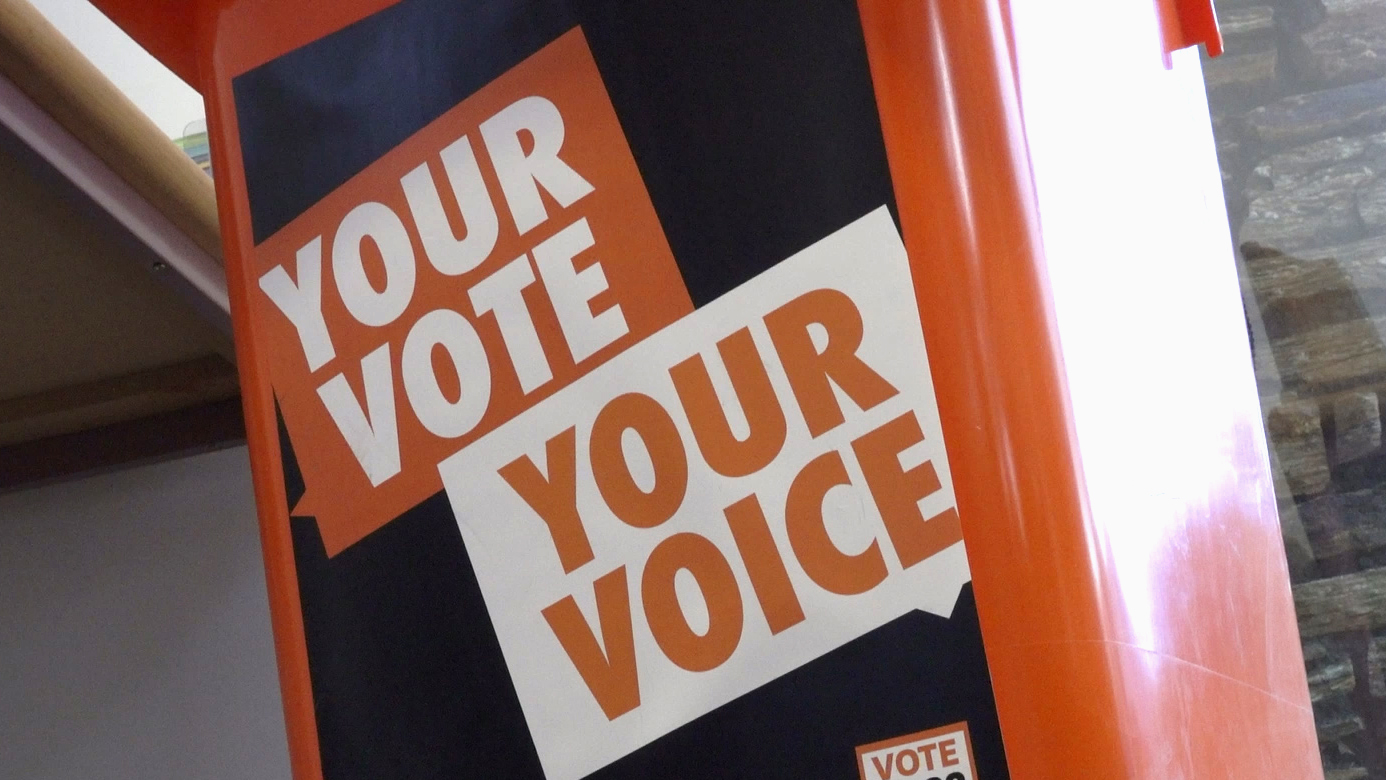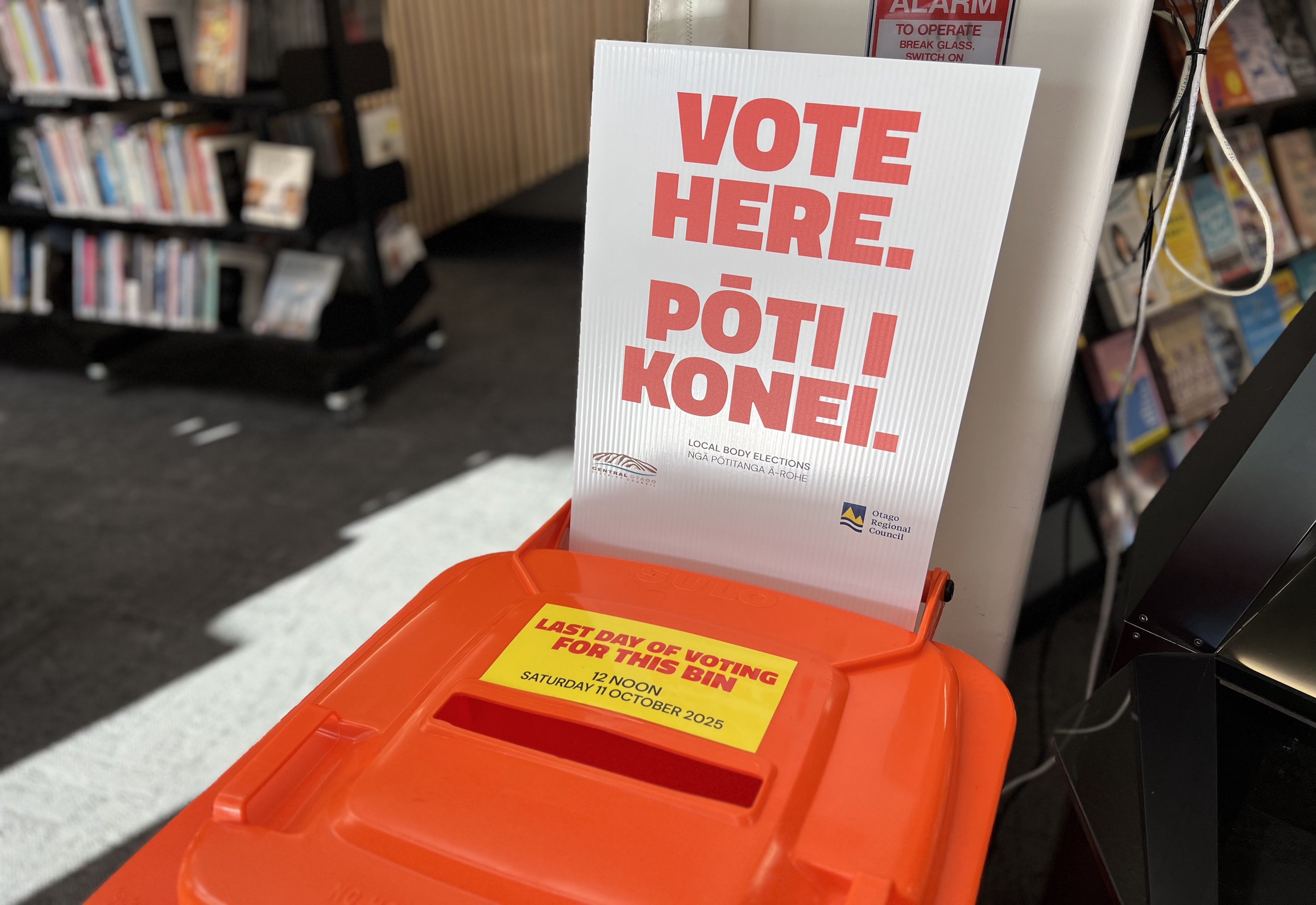Mayor, council candidates respond on rates, debt
Staff Reporter
24 September 2025, 5:00 PM

The Central App asked local body candidates about their priorities for Central Otago District Council’s Long-Term Plan.
When you sit down to set the next Long-Term Plan (LTP)/Annual Plan, what’s your framework for balancing rates, debt, and service levels? Please name: one service you’d protect even under pressure, one area you’d scale back or defer, one new investment you’d prioritise.
Here’s how they responded:
Mayoral candidates respond
Mark Quinn:
“When the LTP is reset (which frankly I find a waste of time as its changed after one year) the points of order are: What is left over from the fixed priced contracts and the open contracts? What is left of the budget set at the last LTP? What is needed urgently in terms of repairs and running costs? What is needed in maintaining the people's council? What is needed in the forecasting for the next year and what are the facts going forward for the LTP? What is our debt and what is our plan to reduce it without selling it off or giving it away?
“I would retain our water for sure because yes it's been neglected by current and previous councils, but it's ours to keep for generations - not put it in a CCO then a company where we would be paying for other companies upgrades and maintenance as well.
“Once our neglected water (which has to be done regardless), the lime in the water, the brown water, then lack of water in towns is disgusting to think we have let our core services go, (yet in the last three years councils have spent near on $300M with loans and incomes). Yet we are in this serious state of repairs and other assets need to be rebuilt for the people. Once upgraded it's purely an ongoing upkeep situation. We the people can manage that and not be fooled by the need to give away our $350M asset that councillors and mayor are currently going to give away … once it's in a company of amalgamated councils we are simply a shareholder but not the owner ... Why would we consider that? I wonder if it's our asset. The council should be paying each rate payer out if it’s giving it away.”
Tamah Alley and Charlie Sanders did not respond.
Candidates for the Cromwell Ward respond
There are nine candidates for four vacancies in the Cromwell Ward.
Stephen Carruth:
“If elected, and then while preparing for the Long-Term Plan/Annual Plan processes, we (the other councillors and I) would need to be supplied with good quality data and information (from council officers).
“I have spent some time over the last six months or so, looking at the information supplied to current councillors (at least the info that is simultaneously put into the public domain). Currently that info possesses two obvious features; it is ridiculously voluminous (padded) and simultaneously of poor quality. The financial information I have read seems to be clearly designed to confuse people enough that they give up (trying to interpret it). Costs are bundled and often given confusing or ambiguous descriptors.
“I would be urging my fellow councillors to vote on a motion that required the chief executive officer to ensure his staff strictly followed new specific rules and guidelines while preparing information for councillors’ consideration. The broad objective here would be avoiding this equation ever happening: 'rubbish in’ (information for councillor consideration) results in ‘rubbish out’ (council decisions). I would be urging for a discussion and vote on that very earlier in the new term.
“Moving to my framework, especially for the next three-year term. Only agree to development of 'shovel-ready' capital works projects that will fit within council's anticipated combined income stream budget (projects collectively fit the council budget rather than council budget blown out by chosen projects); Ensuring that developed proposals from staff included joined-up-thinking on consideration of different ways of achieving undertaking (performing) the works; Ensuring that developed proposals contained specific terms (to be later included in the project's contract terms) that ensured both a high build standard and on-time delivery; Ensuring that every proposal included details of which council staff would be accountable for delivery of the approved project. No councillor sign-off of any uncosted project (or work).
“One service I would protect even under pressure: Because of the dire situation that the last two council terms have left, it would need to be pensioner housing.
“One service I would scale back or defer: After the sorting of all projects into a priority, then any project that fell outside of the scope of council's overall defined works budget for the year.
“One new investment I would prioritise: Subject to ceasing transfer of the ratepayers water assets into the new CCO (for three waters management), then any 3 waters project where not performing it soon would incur greater costs.”
Dave George:
“I believe that the district archive should remain the hall complex. There should be a strong focus on local genealogy. The museum and arts component should remove itself to the historical precinct. There should be a much better use made of McNulty House. Covered displays of wooden transport. Outdoors exhibits of dredging and sluicing technology.
“We should feature our local merchant business Kum Goon Wa and Co on Melmore Terrace. We should afford our Chinese pioneers the same profile as the other businesses in the district. It is essential, with our heritage profile, that we move from a local perspective to a national perspective. We need to aspire to present our local heritage and culture to an international standard.
“I believe the council should foster the idea of having new primary schools up Wānaka Road and at Bannockburn.
“I would like to see the Cromwell Mall expand, business by business, with council providing the core services required.”
Bob Scott:
‘The one service I would protect under pressure is water. Every member of this community has the right to expect their council to provide clean, healthy drinking water and efficient, safe and cost effective disposal of wastewater.
“I'm not sure that any of the services the council provides need to be scaled back. Just done smarter. For example, there are a lot of contracted-out services that are presently not done well and could easily be done in-house with considerable savings. I believe that an urgent review of council staff’s performance is required.
"I would like to see the council investigate a targeted rate for second home owners. This is a particular problem in Cromwell where there is a chronic housing shortage and yet some areas have a 40 percent occupancy outside of the main holiday times.
“The investment that I would prioritise is to allocate some land to be used for a healthcare facility from the stock of investment land that is currently available in Cromwell. It could be sold to the health department at the going rate for industrial or commercial land and would demonstrate our willingness to partner with central government in providing the health service our community urgently needs and deserves.”
Sarah Browne, Andrew Burns, Terry Davis, Cheryl Laws, Gareth Noble, and Charlie Sanders did not respond.
Candidates for the Vincent Ward respond
There are 11 candidates for four vacancies in the Vincent Ward.
Ian Cooney:
“I think that there is a need to balance carefully what is paid for now through rates and charges, and what is to be paid in the future through debt funding. I tend to go with the framework of paying for operational expenses through rates, new capital projects through debt funding, and growth through development contributions. In terms of service levels I consider it important that council sets a realistic and achievable forward work program so as not to have scheduled work pushed out to a future date where it will likely cost more for the community.
“To me focusing on the basics is important, core infrastructure like roading, waters, waste, community facilities, parks and reserves, and the planning and regulatory functions of council. Rather than scaling back or deferring one area I would look to identify small improvements that can be made, and wasteful expenditures that can be removed from all areas.”
Jayden Cromb:
“I will not mislead voters by promising unrealistic rate reductions or the type of rate caps that have resulted in the infrastructure deficit we find ourselves in now, even if that would be popular. The reality is we will need to see where things sit once we have the details on the water CCO, before we know what the next LTP looks like.
“Council debt isn't a dirty word when you're talking about using it to fund infrastructure that will last the next 50 years. We need to balance the cost of paying now, but also ensuring that the next generation pays their fair share of the cost. I want to ensure that we get this right and that no one age group is dumped with the full cost. While I support using debt wisely for infrastructure I do not support using it for operational costs. If we reach that point then we will need to have a serious and realistic conversion with the community on what the next steps are.
“What would cuts look like? Does that mean just funding core business? If so, what is core business? We gave the community some options to scale back in the LTP and they said very loudly no. It isn't up to central government or us to make the decision on what core business means in Central Otago. It needs to be a decision made by this community.
“It is hard to answer the whole question, without seeing the makeup of the next council or the financial situation we are in. But in the spirit of trying to avoid not answering questions, if it were solely up to me I would permanently protect our elderly housing and community grants that help support some of our communities most vulnerable, and look at scaling back earthquake strengthening on our smaller halls until we know what the government plans to do in that space.”
Dave McKenzie:
“Set priorities and live within your means. Protect - 3 Waters / core functions, scale back no core expenditure, new investment - more flexible District Plan as the current one prevents growth. We need more growth, more people to share the rates burden.”
Martin McPherson:
“The biggest challenge we face is funding central government mandated activities. Our council needs to continue to lobby central government to explore other funding streams other than rates.
“Borrowing over a long term allows council to rebuild and replace infrastructure and the cost of this is spread out over multiple generations of users.
“I will continue to support and fund our heritage sector. I would support a transition from general rate payers contributing to the tourism sector to the sector paying its own way. I would support investment into Alexandra waste water upgrades to insure capacity for future growth.”
Louise van der Voort:
“I would protect parks and open spaces from inappropriate development.
“I would scale back on red tape while ensuring the council is still delivering quality services.
“I would prioritise investment that provides long term benefits or financial returns to the community.”
Gill Booth, Lynley Claridge, Kas McEntyre, Nathan McLean, Tracy Paterson, and Cam Withington did not respond.
Candidates for the Maniototo Ward respond
There are two candidates for one vacancy in the Maniototo Ward.
Michelle Bisset:
“I believe that this triennium, as the council moves to shift its water assets to a CCO, there should be a period of stability and consolidation. Local government is woefully underfunded and over and above my following answers, I will fully support any council initiatives to lobby or ‘push back’ on central government in regards to unfunded or underfunded mandates.
“My one service to protect is water. For the communities of the Maniototo, their needs in terms of sustainable, drinkable water must be a priority. The installation of protozoan barriers will not future proof these water supplies. I will be fighting for these supplies to have priority in the transfer to the CCO along with upgrades to wastewater systems that threaten to degrade our natural environment across the district. Addressing our water infrastructure deficits must come before increasing industrial and urban development.
“My area to scale back would be parks, reserves and events. These are areas where spending can, in my view, be scaled back over the next few years and/or where spending for development can be deferred.
“My area for investment is community. Establish a district wide community initiatives fund to enable seed funding for community projects that council has less options for leveraging from. Communities know themselves and their needs best; identified projects can seek additional funding options not available to councils and an initiatives fund is an opportunity for council to trust in its communities, funding them accordingly. Dollar for dollar, this is an investment that makes sense.”
Stu Duncan:
“We must invest in infrastructure, roading and bridges to connect all our communities and have [the] ability to move goods, services and emergency services in and around our districts. Under pressure scale back libraries and museums and investment in alternative energy uses for rate payers – eg roof top solar.”

Candidates for the Teviot Valley Ward respond
There are two candidates for one vacancy in the Teviot Valley Ward.
Curtis Pannett:
“Keep rates affordable – ratepayers can’t shoulder unchecked rises.
“Use debt prudently – conservative levels only, reserved for intergenerational infrastructure where future users also share the cost.
“Balanced and pragmatic decision-making – acknowledging the cost pressures of today while planning for the needs of tomorrow.
“One service I’d protect even under pressure: roading. If people and businesses can’t move efficiently around the district, it impacts productivity, safety, and community connection.
“On scaling back: I won’t single out any one area without the numbers in front of me — we need to go line by line through the spending programme. For me it’s all about the value proposition and having clear priorities. Council must focus on its core functions: roading, waste, community facilities and pools, and—for the next year or two—water. In areas like community development and social wellbeing, community organisations can often deliver programmes more quickly and cost-effectively than council.
“One new investment I’d prioritise: The time and oversight we as councillors devote to overseeing the setup of the new joint CCO for water — and just as importantly, right-sizing the remaining council operations so they are fit for purpose in the new environment. The goal at the joint CCO must be to ensure it is adequately capitalised, with strong, competent governance and a singular focus on being a lean, mean water delivery machine.”
Mark Quinn:
“When the LTP is reset (which frankly I find a waste of time as it’s changed after one year) the points of order are: What is left over from the fixed priced contracts and the open contracts? What is left of the budget set at the last LTP? What is needed urgently in terms of repairs and running costs? What is needed in maintaining the people's council? What is needed in the forecasting for the next year and what are the facts going forward for the LTP? What is our debt and what is our plan to reduce it without selling it off or giving it away?
“I would retain our water for sure because yes it's been neglected by current and previous councils, but it's ours to keep for generations - not put it in a CCO then a company where we would be paying for other companies upgrades and maintenance as well.
“Once our neglected water (which has to be done regardless), the lime in the water, the brown water, then lack of water in towns is disgusting to think we have let our core services go, (yet in the last three years councils have spent near on $300M with loans and incomes). Yet we are in this serious state of repairs and other assets need to be rebuilt for the people. Once upgraded it's purely an ongoing upkeep situation. We the people can manage that and not be fooled by the need to give away our $350M asset that councillors and mayor are currently going to give away… once it's in a company of amalgamated councils we are simply a shareholder but not the owner... Why would we consider that? I wonder if it's our asset. The council should be paying each ratepayer out if it’s giving it away.”
NEWS
SHOP ONLINE WITH LOCALS







